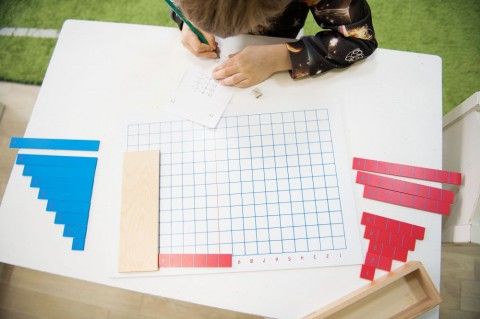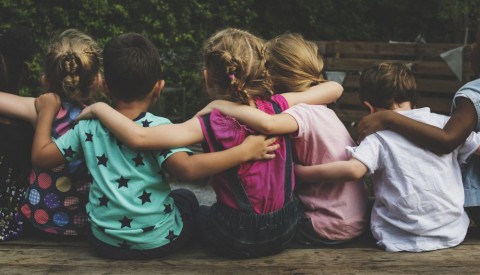What is the Capstone Year and why does my child deserve to have one?
We often refer to the 3rd year a child is in a Montessori program as the Capstone Year. But what is it that really makes the year so special and important? We invite parents of our current 2nd year students in Early Childhood and Lower Elementary and 4th year students in Upper Elementary to consider the following reasons we recommend providing your child with their Capstone Year.
Reasons to Stay:
- Is your child learning, happy, and engaged? If so, consider yourself lucky. Why tinker with a winning situation when so many other families are frustrated or disappointed with their child’s school experience.
- Your child has waited for two years to be a leader in their class. The third year students are looked up to as role models for the younger students, and most children eagerly await their opportunity to play this role.
- The third year is the time when many of the earlier lessons come together and become a permanent part of the child’s understanding. Leaving early means many of the still forming concepts evaporate.
- As a leader in the class, your child has many opportunities to teach the younger children lessons that they learned when they were their age. Research proves that this experience has powerful benefits for both tutor and tutoree.
- Third Year Montessori children normally go on to still more fascinating lessons and more advanced Montessori materials. The natural process of abstraction or critical thinking around familiar concepts materializes naturally and gears the child up for more advanced skills.
- The Montessori curriculum is more sophisticated than that found in traditional programs.
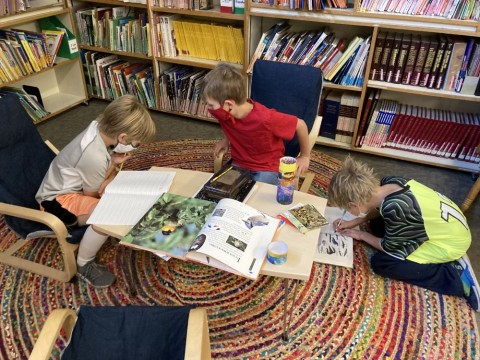
- Having spent two years together, your child’s teachers know the students very, very well. They know their strengths and areas that are presenting challenges. 3rd years can begin the year strong, without having to build a relationship of trust with the teacher.
- Your child already knows most of their classmates. They have grown up in a safe, supportive classroom setting. They are learning appropriate social boundaries and interactions with a group of familiar peers.
- Montessori math is based on the European tradition of unified mathematics. Montessori introduces young children to basic geometry and other sophisticated concepts as early as kindergarten. Our spiraling curriculum means students will revisit these skills and build on them throughout their elementary experience.
- Third Years have a real sense of running their classroom community, an important leadership skill that goes on with them.
- In Montessori, your child can continue to progress at their own pace. In traditional education, they may have to wait while the other children begin to catch up or will be forced to move ahead before they are ready.
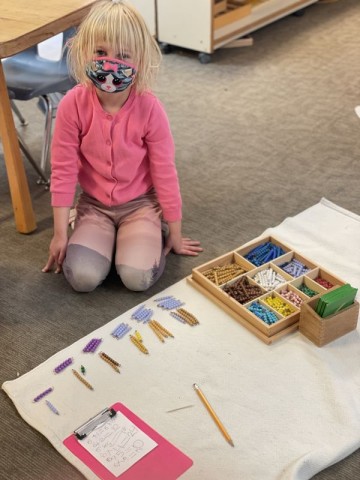
- Beginning as early as kindergarten and continuing through elementary, Montessori children are studying cultural geography and beginning to grow into global citizens.
- In Montessori, students work with intriguing learning materials instead of preprinted work books, allowing a student to work on a skill for the right amount of time for their own understanding and not by a predetermined timeline.
- Your child has been treated with deep respect as a unique individual. The 3rd year student is ready and able to recognize and reciprocate this respect and contribute to the culture of the school and their community.
- Montessori schools are warm and supportive communities of students, teachers, and parents. Children can’t easily slip through the cracks!
- Montessori consciously teaches children to be kind and peaceful.
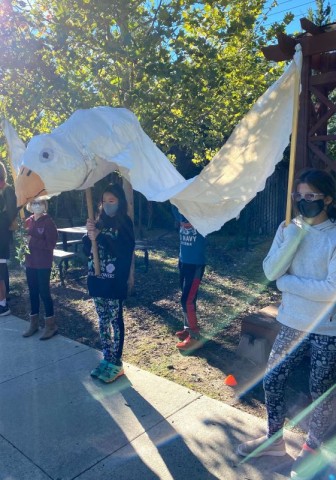
- In Montessori schools, learning is not focused on rote drill and memorization. Our goal is to develop students who really understand their schoolwork.
- Montessori students learn through hands-on experience, investigation, and research. They become actively engaged in their studies, rather than passively waiting to be spoon-fed.
- Montessori is consciously designed to recognize and address different learning styles, helping students learn to study most effectively.
- Montessori challenges and set high expectations for all students not only a special few.
- Montessori students develop self-discipline and an internal sense of purpose and motivation.
Three, six, nine and twelve years old are natural transitional ages for children. They are the best time for children to move to new classrooms or schools.
While the reasons to leave can be compelling and are worth every consideration, we believe the reasons to stay are worth your careful and thoughtful consideration.
(Adapted from Tim Seldin’s 25 Reasons to Keep Your Child in Montessori Through the Kindergarten Year, Tomorrow’s Child.)
